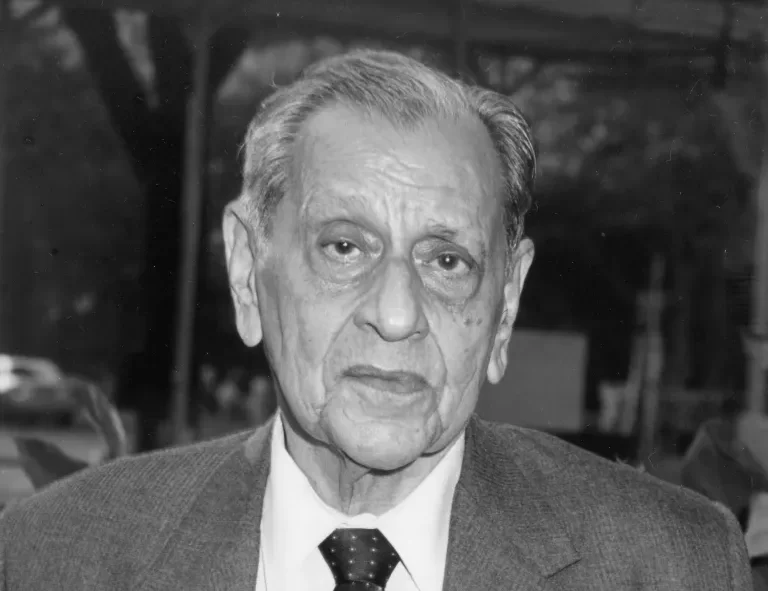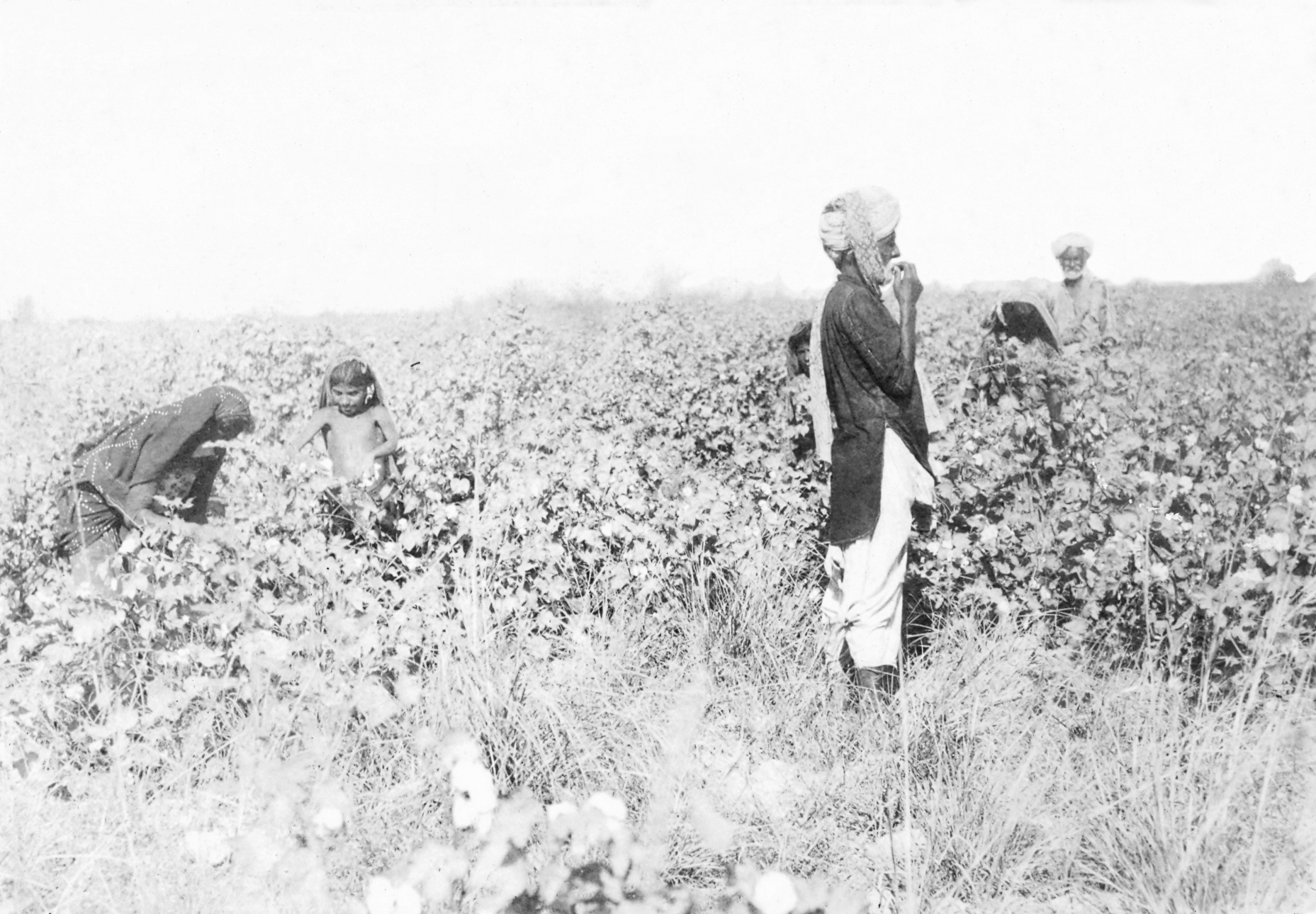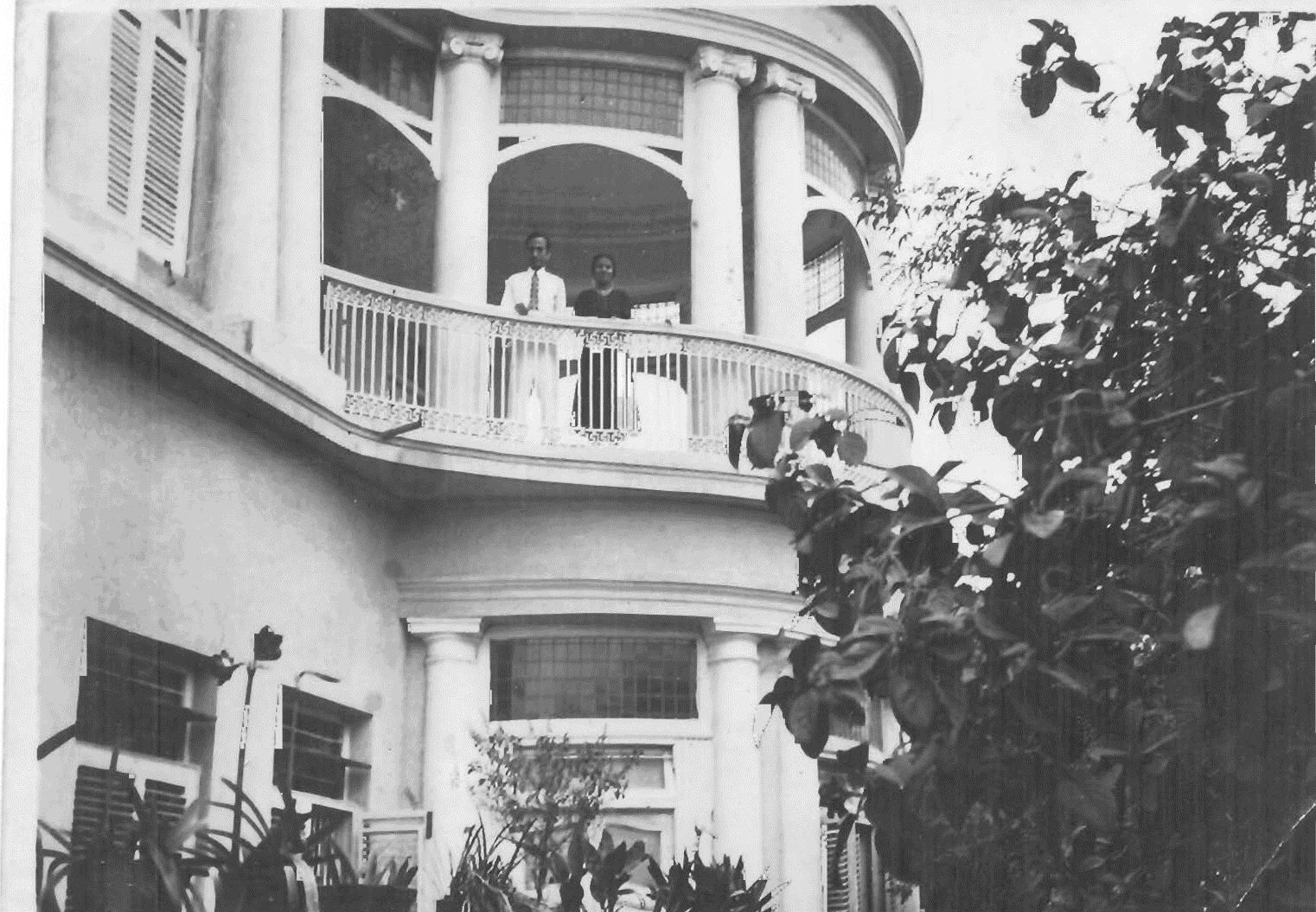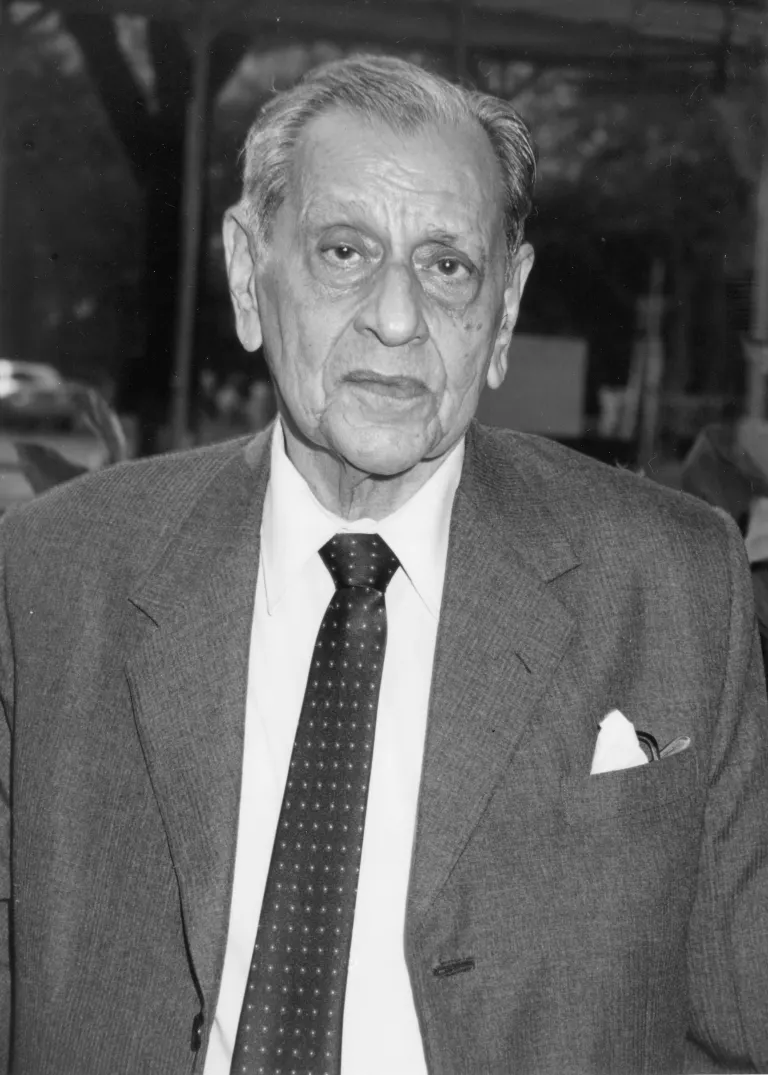
Pribhdas was a high academic achiever, fluent in English, Persian and French. He loved playing tennis, and he enjoyed reading Sindhi and Persian poetry.
A tribute to an extraordinary person, Pribhdas Nanikram Gidwani (3 Aug 1916 – 15 May 2018)
Saaz Aggarwal
Pribhdas, the sixth of eight siblings, was born to Ramibai and Nanikram Jethmal Gidwani. A sickly child in a time of low mortality, who could imagine that he would live to be a hundred and two?
Nanikram was a magistrate and had the authority to conduct judicial trials of the Sessions Court. He was also a zamindar of Wagreji, Tehsil 291 and Jamesabad with 2000 acres of his own and 20,000 more under his control, largely growing cotton.
 When the family visited the fields, evenings were spent in pleasant conversation, kacheri, with their farm hands, exchanging folk tales, songs and Sindhi baits. During the day they inspected their lands riding on horseback and Pribhdas never forgot Makro, his favourite Arab stallion who had to be left behind – who could know what happened to Makro after the family left Sindh after Partition?
When the family visited the fields, evenings were spent in pleasant conversation, kacheri, with their farm hands, exchanging folk tales, songs and Sindhi baits. During the day they inspected their lands riding on horseback and Pribhdas never forgot Makro, his favourite Arab stallion who had to be left behind – who could know what happened to Makro after the family left Sindh after Partition?
In 1933, the family moved to Karachi and took up residence in Jethmal Mansion, a palatial home Nanikram named after his father at No 15 Amil Colony No1.

Pribhdas was a high academic achiever, fluent in English, Persian and French. He loved playing tennis, and he enjoyed reading Sindhi and Persian poetry. When he was twenty-one, his father sent him to England for higher studies and his mother, worried, warned him not to eat beef, smoke or get married to a foreigner. Pribhdas attended the prestigious London School of Economics, interacting with the best brains in the world and making lifelong friends. In 1939, he received the heartbreaking news that his father had died, succumbing to pleurisy. When the Second World War broke out, his education was interrupted and he returned to India to complete his examination for BSc in Economics from Colombo as an external student. Pribhdas was called to the bar at Middle Temple in 1941.
With all his exposure to urban living and his excellent academic qualifications, Pribhdas chose to work on his family’s extensive landholding as he did not wish to serve the British Empire. One of his tutors had suggested that he sit for the ICS examination but Pribhdas declined for this reason. However, his English education came in handy in dealing with the British agents who came to purchase cotton. Being a wadero was strenuous but fulfilling and in the evenings, the haaris would gather and recount their simple tales and Pribhdas would recite couplets of Shah Abdul Latif.
When Partition came, the family chartered an Ambika Airlines plane to fly out of Sindh. Pribhdas and his eldest brother Motiram stayed behind to put their affairs in order and leave until the difficult times abated and they could return, little knowing that it would never be. Sabbab Ali Sabbah, their munshi, escorted them to safety and bid them goodbye with tears in his eyes.
How does a family that has lived in style adapt to life in a place with a different language and culture, having left behind most of their material assets? With the benefit of his education, Pribhdas went to work as a professor and education administrator. In 1948, he was appointed Vice Principal and Head of Economics Department at the recently founded Jagadguru Gangadhar College of Commerce. With his sound knowledge of history, philosophy, economics and law, and being an excellent orator, he was invited to speak regularly on All India Radio on various topics for a period of some years, which supplemented the income of the joint family.
 In 1955, Pribhdas went back to his studies and earned MLitt from University of Glasgow and when he returned, he worked first as Head of Economics Department at Siddharth College of Commerce and Economics, joining the HSNCB in Bombay as Founding Principal and Professor of Economics at MMK College 1960-1970. Within a few years the college acquired a reputation as one of the best in the suburbs.
In 1955, Pribhdas went back to his studies and earned MLitt from University of Glasgow and when he returned, he worked first as Head of Economics Department at Siddharth College of Commerce and Economics, joining the HSNCB in Bombay as Founding Principal and Professor of Economics at MMK College 1960-1970. Within a few years the college acquired a reputation as one of the best in the suburbs.
From 1970-1990 he was Principal of HR College which also established itself as a premier institution very soon. During his Bombay years, Principal Gidwani served Bombay University in many important positions. It was during this period that he was struck by personal tragedy and lost his wife Janki (nee Jhangiani 1923-1985).
He continued working with the spirit well described in an interview to Dipti Satwani for Sindhian in 2016 when he turned 100:
I was full of enthusiasm to contribute to the building of a modern India. I was keen to introduce students to logic, reasoning, and economic and business management ideas that would transform our economy.
_______________
 Saaz Aggarwal is an independent researcher, writer and artist based in Pune, India. Her body of writing includes biographies, translations, critical reviews and humor columns. Her books are in university libraries around the world, and much of her research contribution in the field of Sindh studies is easily accessible online. Her 2012 Sindh: Stories from a Vanished Homeland is an acknowledged classic. With an MSc from Mumbai University in 1982, Saaz taught undergraduate Mathematics at Ruparel College, Mumbai, for three years. She was appointed features editor at Times of India, Mumbai, in 1989.
Saaz Aggarwal is an independent researcher, writer and artist based in Pune, India. Her body of writing includes biographies, translations, critical reviews and humor columns. Her books are in university libraries around the world, and much of her research contribution in the field of Sindh studies is easily accessible online. Her 2012 Sindh: Stories from a Vanished Homeland is an acknowledged classic. With an MSc from Mumbai University in 1982, Saaz taught undergraduate Mathematics at Ruparel College, Mumbai, for three years. She was appointed features editor at Times of India, Mumbai, in 1989.
Courtesy: Saaz Aggarwal/ Sindh: Stories from a Vanished Homeland